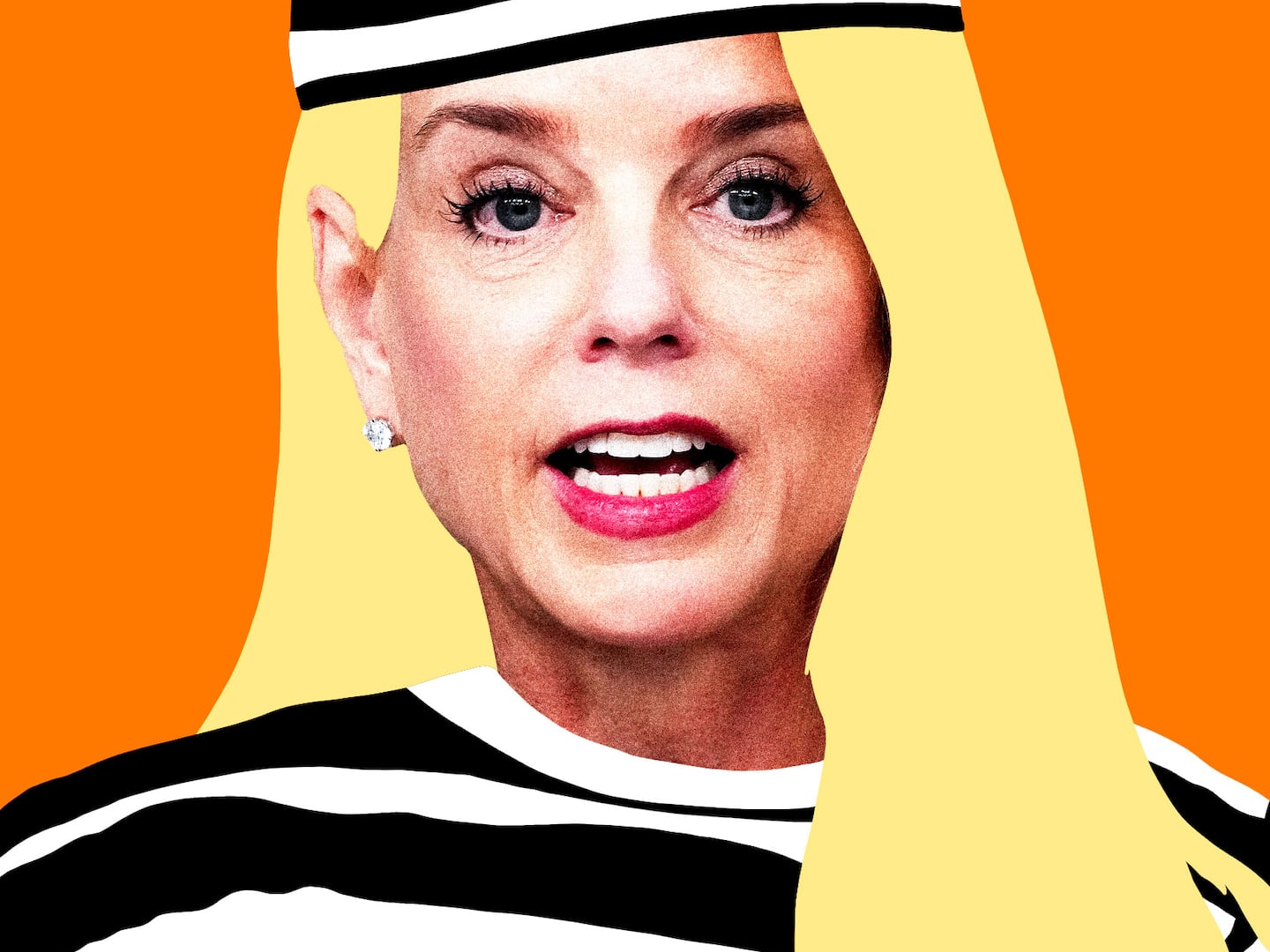
In the nightmare scenario of Rep. Paul Ryan—probably the House Republicans’ leading expert on health care and the federal budget—he’s standing in the crow’s nest of the Titanic shouting “Iceberg!”
There’s plenty of time to turn the ship around, but no one is listening.
“I was delighted to talk to [Ryan],” Alan Greenspan said, “because it was so refreshing to see somebody from the House who is at his intellectual level.”
“What I see happening is the creation of a new entitlement program that’s going to be even bigger than Medicare,” Ryan, who represents Wisconsin’s recession-battered 1st Congressional District, told me Tuesday night. It was a few hours after the Senate Finance Committee passed Chairman Max Baucus’ health-care bill with the help of a lone Republican, Maine Sen. Olympia Snowe.
“It’s the absolute height of fiscal irresponsibility,” Ryan went on, “because the shame of it all is we could actually fix what’s broken in health care without breaking what’s working, and without creating a huge new entitlement program that will accelerate the bankruptcy of this country. That’s what so shameful about this whole system. That’s what’s so frustrating.”
The 39-year-old Ryan—the GOP’s “It” Boy on economic and fiscal policy as ranking Republican on the House Budget Committee and No. 4 on Ways and Means—told me he isn’t persuaded by the nonpartisan Congressional Budget Office’s much-trumpeted analysis last week that the Baucus bill would actually reduce the deficit by $81 billion over the next decade.
“I don’t dispute their score, but they score what’s put in front of them,” Ryan told me, noting that a key provision of the bill requires insurance-covered doctors’ fees to be slashed by 25 percent—a politically untenable outcome, he said. “I don’t have a beef with the CBO. I dispute the reality of these savings ever being achieved. And if you don’t do the 25 percent, the whole thing falls apart.”
Ryan added: “Congress has a pattern of passing cuts to pay for bills and then restoring the cuts once the bill has been passed. It’s crystal-clear to me that the ‘pay-fors’ in this bill will not survive and we will have created a huge deficit-funded liability. … I see no reason why Congress would change its behavior.”
Even scarier, in Ryan’s view, is that the Baucus bill could end up effectively eliminating Medicare Advantage, a subsidized private insurance program on which 6 million seniors depend to fill the gaps in their standard Medicare coverage. “Twenty percent of the total number of over-65-year-olds are on Medicare Advantage plans,” Ryan said, adding that the Obama White House has issued a gag order on the Department of Health and Human Services, forbidding officials from publicly discussing the fate of the popular program under various legislative scenarios. “You can get $60 billion in savings from Medicare Advantage and keep it alive, but this bill gets $170 billion of savings, basically destroying the program,” Ryan said. “The Democrats hate it anyway, because it’s private, so they are killing a program that they never liked in the first place.”
And yet, with Tuesday’s 14-9 Senate Finance Committee result (with the Democrats voting in a solid bloc, joined by Snowe), “this adds grease to the skids,” Ryan told me. “That means their 60-vote strategy may materialize, which means they can avoid reconciliation”—the brass-knuckled parliamentary maneuver that allows a simple majority to prevail and deprives opponents of the filibuster weapon. “It means [Senate Majority Leader] Harry Reid has a chance of getting it through with 60 votes,” Ryan said, “and the Democrats can basically do what they want to do.”
Ryan, a former Senate staffer, also said he doubts that the GOP leadership will make good on threats to punish Snowe for her heresy by blocking her from moving up to the vacant ranking Republican’s seat on the Senate Commerce Committee. “In the House, it would happen,” Ryan said, “but in the Senate there’s such a purely seniority-driven system, it would be kind of a surprise.”
Ryan—who has been elected to six terms with more than 60 percent of the vote from a swing district that was carried last year by Barack Obama—is no Rush Limbaugh Republican. Nor does he embrace the “Party of No.” Hardly anyone outside the mediapolitical complex is aware of it, but Ryan actually has proposed detailed legislation to fix the ailing health-care system—albeit a free-market, consumer-driven solution that most mainstream Democrats would reject. Yet everyone from President Obama’s budget director, Peter Orszag, to former Federal Reserve Chairman Alan Greenspan acknowledges the intellectual rigor of Ryan’s approach.
“He has different policy priorities and perspectives than I do, but he is very smart, very energetic, knows his stuff and does his homework,” said Orszag. House Budget Committee Chairman John Spratt—Ryan’s nominal adversary—agrees. “You should not underestimate Paul’s ability,” Spratt told me. “Notwithstanding his young age, he’s had lots of experience.”
Greenspan is equally impressed. Months ago, after Ryan unveiled his “American Roadmap”—an exhaustive prescription for saving Medicare, Medicaid, and Social Security from future insolvency, reducing the federal deficit to sustainable levels, promoting job growth, and setting U.S. trade policy to help American businesses compete in the global economy—the former Fed chairman brandished his own dog-eared copy and asked the young congressman to walk him through it.
“I was delighted to talk to him because it was so refreshing to see somebody from the House who is at his intellectual level,” Greenspan told me. “He’s not an academic in the sense that he writes papers. Pat Moynihan, for example, was an academic who became a senator. Paul is a politician who is reaching out for ideas because, I’m assuming, he recognizes that there are essentially two ways to work in the House: One is through connections, and the other is through ideas—and he’s obviously decided that’s the direction in which he wants to go. Frankly, that’s the area in which the Republican Party is most deficient.”
Greenspan continued: “If you cannot explain the ideas in clear terms, you don’t understand them well enough to employ them for policy purposes. One of the ways you can tell what his level of intelligence is, is he can make things simple without distorting their meaning.”
Former House Speaker Newt Gingrich also compares Ryan to the late Moynihan, the Harvard professor who ended his political career as New York’s senior senator. “I don’t know of any other elected official since Pat Moynihan who would put that kind of a completely detailed book together the way Paul has, to reach out and talk about reforming Medicare, Medicaid, and Social Security,” Gingrich told me, referring to Ryan’s Roadmap. “By any reasonable standard, that’s pretty darn courageous.”
Meanwhile, Washington establishment pundit George Will has been privately urging Ryan to run for higher office—perhaps even the White House next time around. The congressman keeps disavowing any interest, but Will hasn’t given up. “His plans on entitlements offer a genuinely comprehensive view of the American state in the 21st century,” Will told me. “He’s clearly broken through—and, in a way, what makes him so interesting is that I’m not sure he’s all that interested in breaking through. What makes him attractive as a potential national leader is that he doesn’t lust for that.”
For the moment, the iceberg looms nigh, and Ryan is bracing for impact.
“The House will pass a bill with the public option, and the Senate will pass the House bill minus the public option,” he predicted. “Even so, the Senate bill is basically turning the health insurance companies into public utilities run by the federal government. And there’s a chance the final bill will have the public option in it anyway. My guess is the Baucus bill is probably the lowest point and they’ll move up from that toward the House bill.”
Ryan told me that if he and his fellow Republicans are able sound the alarm loudly enough, and bring enough blue-dog and moderate Democrats along with them, there’s an outside chance the legislation can stopped.
“If this thing gets defeated, then they’ll have to come and work with the Republicans and pass a bill that’s bipartisan,” Ryan said. “That’s my hope.”
Probably more of a pipe dream, he admitted.
“They have the wind at their backs now.”
Lloyd Grove is editor at large for The Daily Beast. He is also a frequent contributor to New York magazine and was a contributing editor for Condé Nast Portfolio. He wrote a gossip column for the New York Daily News from 2003 to 2006. Prior to that, he wrote the Reliable Source column for The Washington Post, where he spent 23 years covering politics, the media, and other subjects.






